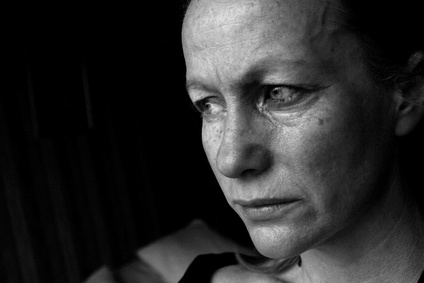I remember telling myself the lies that sounds like truth to so many of us when we are hurting, agonizing over the end of our marriage.
It was a long and miserable December. I knew my marriage was on life support, and in my heart of hearts I knew that despite our best efforts, it could not be saved. And yet I remember walking the slushy streets to work, forcing a smiling face during dinner with friends, and trying to busy myself with every distraction that I could find, desperately repeating the weak lies to myself, hoping I could believe them:
“I have put too much time into this marriage for it to end.”
“If we split, all those years together will be a waste and will mean nothing.”
Years and what seemed like a lifetime later, I had nearly forgotten about those thoughts, until one day I was having lunch with a group of girlfriends. One of them was going through a rough patch with her husband, and separation seemed inevitable. As we sympathetically listened, she said something that stuck out, triggering something I had long forgotten.
“I have sacrificed way too much and invested way too much time into this relationship. I’m not just going to walk away from it.”
It was then I realized that we all do this when we are about to call it quits but may be afraid of what will happen after the split: we try to reason with ourselves that we should hang on to a relationship. We treat the time we spent like it’s non-refundable down-payment that we don’t want to lose, so we’ll hang on to the investment that may not be in our best interest.
Viewing our relationships as a time investment, when those relationships no longer serve us in a healthy and loving manner, serves no purpose but to cause suffering. It is this myth of marriage as time investment that we must debunk, so that we can learn how to rebuild our lives and give ourselves the chance to move on and be happy.
We must quit treating the “time we put in” to our marriage like it’s money we put into an investment, especially if the investment is one that no longer serves a healthy, loving purpose for all investors (a.k.a. both partners).
The years we have spent dedicating ourselves to a marriage were originally intended to sow the seeds of building a life together with someone we loved, and granted there were probably many great things that came from that time together—good memories, building a family, combining assets so that we were living more comfortably together than we would have been had we been living alone. And for a while, that time together was great.
But once things started to fray and it isn’t possible to repair the cracks that started to shake the foundation, we cannot invoke those years spent as a justification to stay in a relationship, especially when the relationship has broken down and both partners are no longer invested in it. Unless we are learning to play the piano, or we are an athlete who must train 8 hours a day to keep in form, or we are hand-painting the Sistine Chapel, we must erase this false narrative that time put in = a guaranteed return.
We deserve more than that. We deserve more than just seeing ourselves, our relationships, and our future happiness as commodities that can be negotiated. But when we see our marriages as merely investments of time and treat it like a justification for staying in something that is no longer healthy, we are only hurting ourselves.
We must acknowledge those years in the relationship for what they taught us, but not treat that time like it owes us something.
Most of us have some wonderful memories from our marriage. There are probably silly stories about how we met our partners, how the proposal happened, moving in together, going on family trips, and hundreds of moments in time that fill up photo albums or cloud storage on the computer. And it is important to acknowledge those times, for they are what gave us happiness at that moment in our lives.
But we must also recognize that the months and years in between those memories, the ones that maybe weren’t so good or that we try to forget, are not collateral to be used as an excuse to remain in a marriage that is no longer working. We may have been in a marriage for 5, 10, 20 years, and we may have made many sacrifices during that time. There are moments when we think that we are owed something because we spend so many years in a marriage that is on its way out. But to treat that time put in as a guarantee that we are entitled to something because of it gets us nowhere.
If it is time to part ways, or if the split has already occurred, we must think of that time as experience for the things the marriage taught us about relationships, about our families, and about who we are because of that time in the partnership. But we must leave it there, and not attempt to use that time as some sort of bargaining tool to say we should remain in something that is no longer sustainable. To do so denies us the opportunity to move on.
We must recognize that we are using the myth of time investment because we are scared.
The time we have put into a relationship, even one in which we were unhappy, or one where our spouse was unhappy, was at least time in which we may have been comfortable. The end of that relationship signifies an end that we thought we knew, an end to how we defined ourselves, and an end to the lives that we had planned out for ourselves—those visions of normalcy that told us that we were like everybody else. And to have that invested time—those years that defined us and shaped us—yanked out from under us, puts us back at some imaginary starting line.
We are afraid to start over, and the unknown forces us to go “back to the beginning”—whatever that means—when we think we are too old, too financially unstable, too emotionally distraught to do so. But we need to give ourselves more credit than that—we must recognize that we are smarter, more organized, more adaptable, and a hell of a lot stronger than we can even imagine.
It’s okay to feel scared about starting over. The fear is what makes us human, but it’s the courage to start over and give ourselves another shot at happiness that makes us truly remarkable. And our ability to acknowledge that we are wavering, using the excuse “but I have put so much time into this marriage” and get past that fear and bargaining is what can help us start over and get that second chance at life.
We must understand that time invested in a relationship does not guarantee happiness. But we can learn to be happy ourselves.
As heart-breaking as it is, there comes a time when we realize that the marriage has run its course, regardless of the years and effort we have put into it. It’s okay to move on, okay to start over, and okay to find happiness on our own terms.
Here is where time spent does become our responsibility. As we start or continue to make a new life for ourselves, we are given a choice about time. We may choose to spend our time angry, bitter, or heart-broken about the end of our marriage, or we may choose to invest time in ourselves and our own happiness. We are not destined to live a life of hurt and misery because we are separating or divorcing. However, we can be destined for greatness and the opportunity to move on and become stronger, more compassionate, and happier people. And putting our energy into that happiness is time well spent.
Author Bio
Martha Bodyfelt is a certified Divorce Coach whose website, “Surviving Your Split,” helps readers break out of their divorce rut, regain their confidence, and move on with their lives.
For your free gift, “The Divorce Goddess Recovery Guide,” stop by survivingyoursplit.com today or say hello at [email protected]


